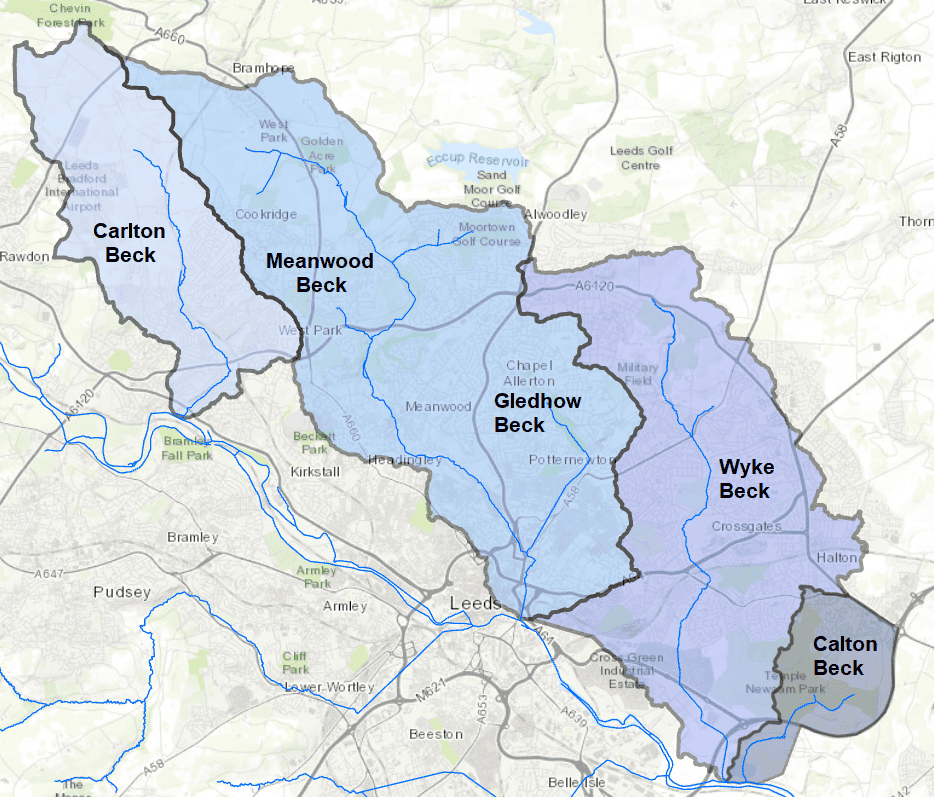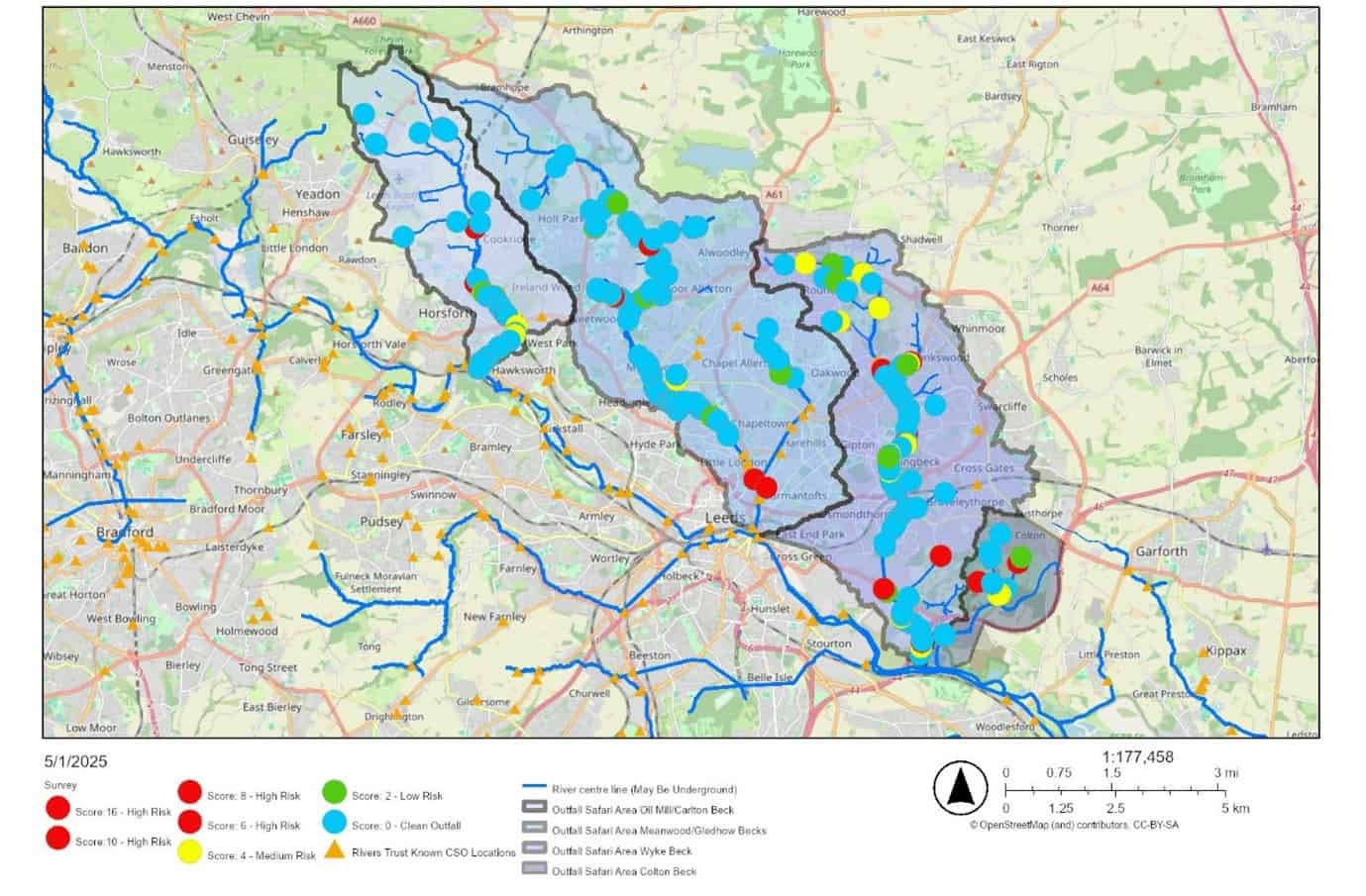
An outfall safari is a citizen science survey method developed by the Zoological Society of London that maps and assesses pollution from pipes along rivers. It uses digital mapping survey apps on smartphones to record images and score the level of pollution discharging from any pipes found.
When you volunteer, you will undertake a day’s training, consisting of a theory morning that provides an introduction to pollution and how to use the online survey recording tools. This is followed by an afternoon practice survey walk to allow you to learn how to put theory into practice.
Following this, we will work with you to select a section of the river to survey and are then added to a Whats App group to help coordinate the survey and share findings. You can then walk your chosen sections of river using public rights of way and spaces to check for pollution.
You might be amazed at the sort of things we find. The photos below are from some of our previous surveys.




During late Winter 2025, we set out with a group of volunteers from across Leeds to assess the rivers in the North of the city for pollution. Walking these rivers revealed a whole host of problems spread across some of the most well-used green spaces in Leeds.
We worked across four catchments from Horsforth to Temple Newsham Park to search for pipes spilling pollution into the river.

Working in partnership with Yorkshire Water, our volunteers walked the publicly accessible sections of the rivers using a mobile phone app to record their findings. These results were then processed by Aire Rivers Trust for investigation by Yorkshire Water, the Environment Agency and Leeds City Council.
We found a wide range of pollution across North Leeds. Varying from misconnected private drainage pipes to misused road drains spilling pollution to the river.
Click on the map below to view the full results of our survey.

The results of our other Outfall Safaris are on this page - have a look and see what we found.
To find out more about Outfall Safari, please contact us.

You can help reduce pollution in our rivers in several other ways:


